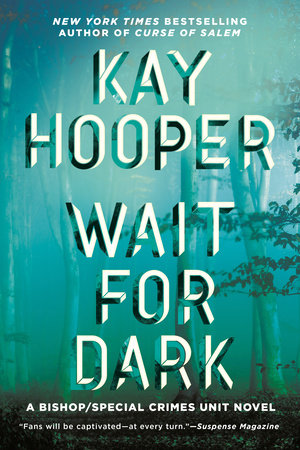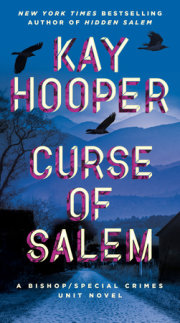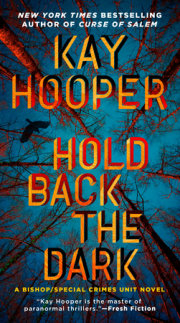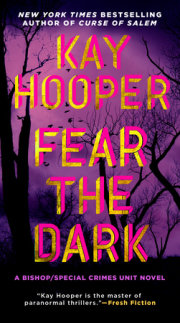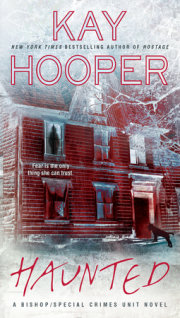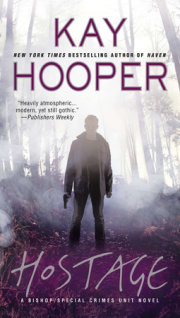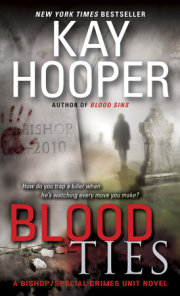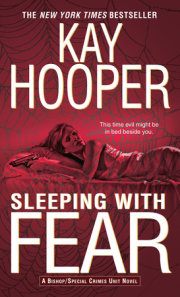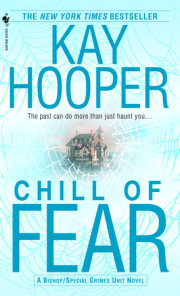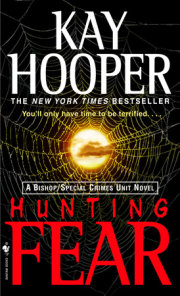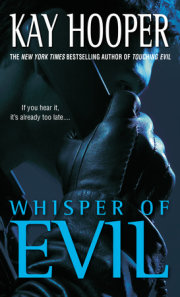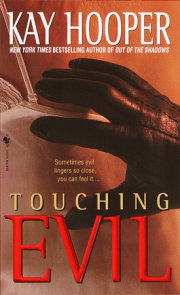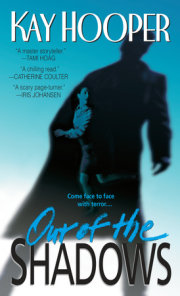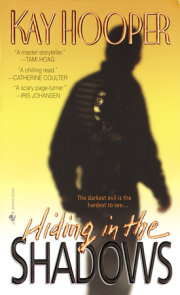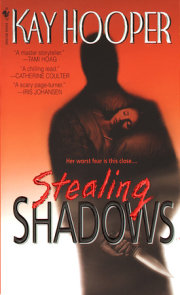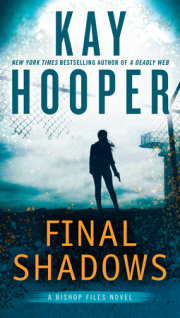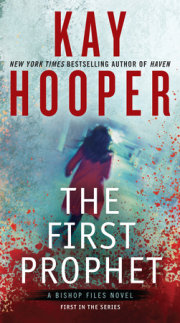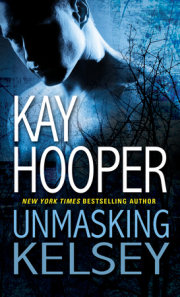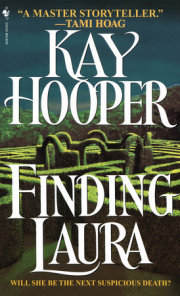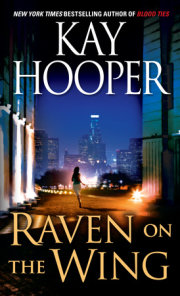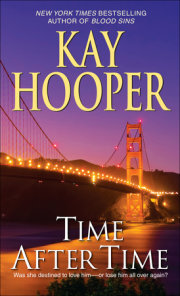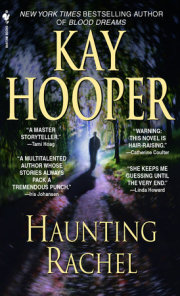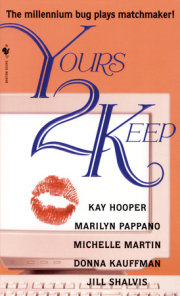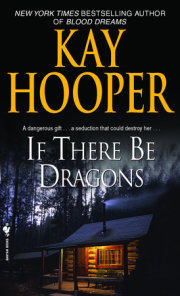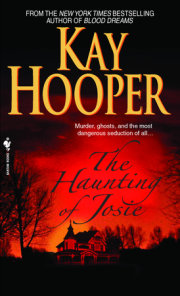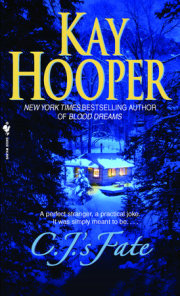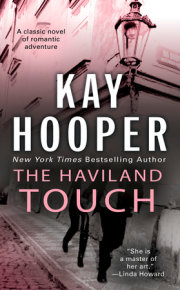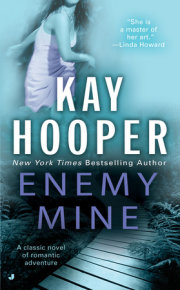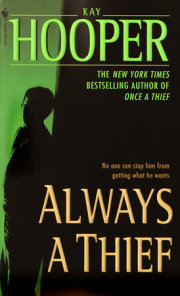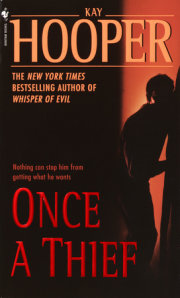Wait for Dark
Prologue
Clarity, North Carolina
July
It didn’t seem like a big deal when Clara Adams saw, a couple of blocks ahead of her car, what looked like a child playing in the center of the road, almost directly under a streetlight. Dumb, but no big deal, after all.
Idiot kid, playing in the street. Where are the idiot parents?
She put her foot on the brake pedal to slow down, already mentally rehearsing what she wanted to say to the kid.
The pedal went all the way to the floor. And the car didn’t even slow down.
Clara hadn’t been going very fast since the downtown speed limit was only twenty and rose only to thirty-five in the residential areas surrounding downtown. But as she gripped her steering wheel in growing horror, her foot pumping the unresponsive brake pedal, she realized that the car was not only not slowing—it was gaining speed.
She pressed frantically at the car’s horn button, but there was no response. Pushed the button for the car’s emergency flashers and, again, no response. No way to warn the little boy she could see more clearly now playing contentedly with a toy dump truck. Even with no one else in sight, she tried to lower the car’s window so she could yell a warning at the child. But that didn’t work either. Even the steering wheel was fighting her.
As if the car wanted to run over the boy.
The needle on the speedometer inched higher, matching the blue numbers in the digital readout that were inexorably climbing as the car’s speed increased.
Clara had no more than seconds to choose between horrible alternatives, and all she knew for sure was that she could not run over a child. So she used all her strength to wrench the resisting steering wheel to the right, trying to aim the car between two others parked at the side of Main Street just before the next intersection. Beyond them was a construction site, as one of the businesses set back from the street was being given a facelift.
A stack of lumber, she thought, was probably the most forgiving barrier she could see.
The car turned—but just enough to avoid the child, shooting past the opening between the two parked cars, crossing into the empty intersection, and then, engine screaming, speed increasing, plowing headfirst into the thick iron post that held the streetlight out over the lanes.
Clara never heard the awful crunch of metal or the screaming engine dying with a sputter. She never heard the car’s horn begin to screech, or smelled the gasoline.
Or saw the first flickering flames.
A blessing, most said later, when word got around. That she never saw. Never knew. A true blessing.
The little boy stood up, holding his dump truck, and looked with a singular lack of expression at the wreck no more than fifty yards away from him. Then he turned, still expressionless, and walked away, unnoticed by the people spilling out of restaurants and the businesses still open, uninterested in their cries of horror, of frantic shouts for someone to call 911.
He stopped briefly on the sidewalk, an expression of confusion passing suddenly over his face. He heard the shouts and the first sounds of emergency response people and vehicles, and looked over his shoulder to see flames shooting into the air. It was all he could see, really, because of all the parked cars and all the people.
He wanted to drop his toy and run in that direction along with everyone else, wanted to see what had happened. It looked awfully interesting, and different for Clarity, where nothing ever really happened.
He hesitated only because he had a strong feeling his ma would not be happy about him near a fire.
And now that he thought about it, why was he here? Hadn’t he gone to bed? It had to be late, or at least it felt late, and he could have sworn he had gotten into his pajamas and gone to bed—
“Sean.”
He didn’t even have a chance to look up before a large, heavy hand gripped his shoulder. And for an instant, things whirled and flipped inside his head, making him dizzy.
The sounds down the street died into a peaceful silence, and he realized he just wanted to go home. To go home and . . . and slip in through the side yard to the window into the laundry room, the one with the broken lock.
It was the way he always slipped in and out of the house whenever he wanted to break one of his ma’s rules or just sneak out to join friends even if he was grounded.
He got grounded a lot.
“Time for bed, Sean.”
Yes . . . that was it, that was where he was supposed to be. In bed. He’d leave his dump truck outside near the driveway, where his ma would expect to find it. And then he’d get back into his pajamas and go to bed.
“It’s just a dream, Sean. Just a dream. You’re fine. You’re absolutely fine.”
The soothing voice made sense, and Sean accepted the information it offered. He was asleep and dreaming.
He just needed to go get back into bed so when he woke up, he’d know for sure he’d been dreaming.
“I’m fine. I’m absolutely fine,” he murmured.
The heavy hand fell away from his shoulder, and eight-year-old Sean Brenner walked away into the unusually cool evening.
He didn’t look back.
One
August
Thursday
“Accident,” Deputy Emma Fletcher said, her tone that of someone who had convinced herself of truth.
Sheriff Malachi Gordon frowned at her. “Yeah? And how many years has Brady Nash used his harvester without getting thrown out of a closed cab and into the teeth of the machine?”
Emma winced, even though describing it, she thought, was never going to have the shock value of seeing . . . what was left of a man she had grown up knowing. Spread out behind the machine in a bloody trail of . . . shreds of flesh and jarringly white shards of bone mixed in with the ripped brown stalks and leaves of corn. Like some obscene salad.
Emma fought a sudden urge to gag and silently told herself to stop with the gross mental images.
“Well?” Mal demanded.
Grateful, she dragged her mind back to being a cop. “I don’t know. A lot of years. Since I was a kid. I remember seeing him plowing his fields in the spring to plant. Harvesting in the summer and into early fall, sometimes late fall. Plowing everything under after the harvest to get ready for winter. He got older and older, but he never seemed to get any slower.” She scowled at him. “Why are you staring at me like that?”
“Just wondering how long it’s taken you to convince yourself this was an accident.”
“All morning,” she confessed.
Mal took a couple of steps back away from the front of the hulking machine until he could look behind it, at the trail of mangled and bloody corn stalks and shreds of human flesh that stretched back for at least a hundred feet.
“No sign it even slowed down.”
“I noticed. And he had to have . . . He must have gone into the blades way back there, or else there wouldn’t be . . . all the blood and stuff.” Field salad. People salad. Farm salad. Stop it! She added hurriedly, “And it’s a straight path; a car with nobody at the wheel definitely would have wandered left or right. Would a machine like this keep going in a straight line if it wasn’t being steered?”
“No idea. I’d assume so, given ground this level.”
“Even with the ruts?”
“Especially with the ruts. This machine was designed for planted fields, and they’re rutted.” Mal shrugged.
Emma cast about for some other question or tidbit of information she might have and came up empty. Too many questions and too little information. It was unusually cool for an August day even in the mountains; she told herself that was the reason why she jammed both hands into the pockets of her uniform jacket.
“Safety features,” Mal muttered. “Brady showed me once when I asked. The controls inside the cab. If the operator has a heart attack or something, that’s what he said. A kind of dead man’s switch; they tend to be on most dangerous machines. The harvester blades stop turning unless the operator is holding that one lever back—and it won’t stay back by itself. They use the same sort of switch on subway trains. And even in gear, the machine doesn’t keep moving forward unless the operator has his foot on the pedal.”
Emma nodded mutely. That made sense. It made all too much sense.
“So why didn’t it stop? It comes to that, how the hell was he thrown out of the cab? Doors are fastened securely, glass is intact. And it did come to a stop, here, even though the engine was still running. Even though he couldn’t have been inside the cab holding that dead man’s switch and with his foot on the pedal all the way down the row since the . . . trail starts way back there.”
“I don’t know,” Emma said. “All . . . this . . . and I’m still trying to figure out why he was even out here last night, nowhere near the barns. That’s what his wife said, right? That he went out to check on his milk cows late, before turning in himself, because one was due to calve, and so she went on to bed without him. Woke up hours later, just before dawn, realized Brady wasn’t in bed. Not that unusual with a cow calving—until she heard the harvester, looked out her window, and saw it sitting here, headlights and the lights above the cab glaring, engine running. Their dog had been shut in the barn and was barking his head off; Brady wouldn’t have left him in there if he wasn’t there himself, since the dog sleeps in the house with them. Sue knew something was wrong. Knew it.”
“I’m just glad she rousted Hank out of bed to check instead of coming out here herself,” Mal said. “Bad enough he had to see this, and call us, and tell Sue—and then come back out and wait until we got here.”
He looked over to the split-rail fence that was more decorative than anything else and bracketed the long dirt driveway up to the farmhouse, noting that Hank Taylor, who was more of a very good friend and partner than an employee to Brady Nash, had his back to the cornfield as he leaned against the fence, gazing off at nothing. The Nashes’ border collie, Murphy, sat at his side, ostensibly held by a makeshift twine leash even though the dog showed no sign of wanting to go anywhere—especially toward the harvester and its gruesome trail.
Hank, a widower who lived on an adjacent plot of land with a tidy little house just over the hill, within easy walking distance, had been badly shaken and wasn’t the sort of man to try to hide it. He and Brady had been as close as brothers.
Mal walked over to the man and dog by the fence, more out of concern than because he expected to learn anything new.
“Hank?”
“That didn’t happen, Mal,” Hank said in a queerly conversational tone, still gazing off into the distance.
“We both know it did.”
“No, I mean . . . it couldn’t have happened. Machines are machines. They work a certain way, the way they’re designed to work. They break down or malfunction a certain way. A machine goes wrong, you know why. But this . . .”
“I know.”
“Do you?” Hank turned his head to stare at the sheriff, a frown creasing the skin between his oddly glazed eyes. “Do you understand this? Because I don’t. It’s . . . like something I dreamed. It’s like a nightmare I can’t wake up from.”
“Yeah. Look, Hank, why don’t you go on home? We’ll have people here for hours yet, maybe coming back over days to study what happened here, and the harvester can’t be moved until I give the word. Nothing here can be . . . changed, until I give the word; we’ll be putting up Police Line tape around the whole area. I know where to find you if anybody else has questions you might be able to help answer.”
Hank looked at him a moment longer, still frowning, but then nodded. “Okay. I’ll . . . go tell Sue I can keep Murphy with me for a while, since she has her sister now. He’s slept at my place before. I . . . don’t think he wants to stay around here. The . . . smell. Stronger for him, of course.”
“That sounds good, Hank. You go take care of Murphy. And take care of yourself, okay?”
“Sure. Sure, Mal. I’m fine, though. I’m absolutely fine.”
Mal stood there for several moments, staring after the tall lanky man trudging along the fence back toward the house, then slowly returned to the horror in the field and his deputy.
“Is he okay?” Emma asked.
“Are you?”
She drew a short breath and let it out in a rush. “Good point. No, I’m not okay. I’m not even close to being okay, not with stuff like this happening. First that weird car crash, then a grill exploding, and the elevator falling the way it did . . . and now this. Four people dead since the middle of July, all from accidents that shouldn’t have happened. That’s not normal, not for Clarity. I looked it up. The last accidental death here was from a farmer falling off the roof of his barn. Nearly fifteen years ago.”
“Yeah.” Mal was still frowning, brooding.
“We’ve been averaging one body a week, Mal.”
“Tell me something I don’t know.”
Emma cast about mentally once again, then offered a bit uncertainly, “Maybe it isn’t Brady. I mean, even if Hank seems sure, how do we even know—”
“His ring.”
She blinked, glanced toward the machine, and then looked hastily away. The clearly male hand was oddly unmarked, jutting up from the bloody metal teeth of the machine from a point between elbow and wrist, fingers relaxed but not curled. And he wore a big ring on that hand, his right hand.
Emma wasn’t really tempted to get any closer. “I never noticed him wearing anything except his wedding ring,” she said.
“Didn’t you? He never took it off.” Mal brooded, still frowning. “It’s his West Point ring.”
Emma blinked. “He went to—”
“Yeah. Didn’t want to be career military, not in the beginning, just wanted the discipline the school offered. Or needed it. Apparently he was a real hellion as a teenager, and his father gave him a choice between some kind of military training or no bail money or quiet word with the judge the next time he landed in jail for being stupid. He was smart enough for West Point, and that’s where he went. Told me he actually enjoyed it, that it suited him. Served the required five years in active duty, then chose a few years in the reserves afterward rather than a military career in peacetime. There was the farm to run, but that isn’t really why he made the choice. He told me once he was almost sorry his age was never right for wartime. Too young for Vietnam; too old for all the Middle East wars since.”
“I doubt Sue was sorry,” Emma offered. “At least they had a lot of good years together before . . . this.”
Mal nodded, still clearly preoccupied.
“What are you thinking?”
He looked at her for a moment as if he didn’t see her, and then obviously brought her into focus. “My gut tells me there’s something we’re not seeing in all this, some kind of connection. And I’m thinking it’s time we called in someone who sees a lot more weird crimes than we do.”
Startled, Emma said, “Crimes? Aren’t they accidents?”
“Any one of them taken alone—possibly excepting this one—I’d probably agree with you, except for one thing they all have in common. Maybe this one too, maybe not. As far as this possible accident goes, somebody else could have been in the cab and managed to run Brady over, and if so that makes it murder or manslaughter. Realistically, that’s the only way this could have happened, given the way the machine operates, with the teeth pulling up, grinding and stripping what’s below the machine, not above it. But nobody else was seen, and way out here they should have been. Even at night.”
“Fingerprints in the cab?” Emma suggested hopefully.
“We’ll print it, but I’m not expecting to find any strange prints in there. With all the crime stuff on TV and movies, only a moron would forget to wear gloves.”
“Brady didn’t have any enemies that I know of,” Emma said.
“Me either. Never heard anything but good of him, and that was my experience with him. I certainly can’t think of an enemy pissed enough to consider this as a way of dealing with his grudge or anger. And there’s another thing bugging me about this one.”
Emma thought she’d had quite enough of inexplicable things but asked anyway. “What?”
“Nobody heard him scream.”
Emma swallowed hard, really wishing she hadn’t had that sausage biscuit for breakfast, and said reluctantly, “Maybe there was no time. If he went in headfirst . . .”
Scowling now, Mal said, “What it looks like is something impossible. It looks like he was held by that one hand or arm, dangled above the blades—and slowly lowered into them. Literally fed into the machine. Slowly enough that when the blades stopped turning, only that one arm hadn’t been forced in.”
She eyed the distances involved, then said, “I just don’t see how anyone could have done that. There’s no room in front of the cab or even a good place to stand, never mind holding a full-grown man out several feet over the blades of a moving machine and—and feeding him into them.”
“Yeah. And it’s not the way the machine works. Or is supposed to work. So did somebody rewire something? Reverse the blades, the engine, something? And say that was done, how did the machine keep on operating with nobody in the seat? Was there more than one person involved? And even so, even if they managed to change the way the harvester operates and somehow feed him into it, how was his arm the only limb or other body part to survive mangling?”
Emma swallowed hard, trying to get horrific images out of her head. “I don’t know anything about engines. But it seems to me it wouldn’t be easy to . . . change the way they were made to operate.”
“No, I don’t think it would be. Hank doesn’t think it would be, and he knows this machinery. Like I said, on its own, this doesn’t make any sense. Along with the other . . . incidents . . . it makes even less sense. None of it makes sense.”
Belatedly, Emma remembered something he’d said. “Except for one thing. You said except for one thing all these accidents have in common. Because it’s all been machines?”
“I wouldn’t call a plain charcoal grill a machine.”
Neither would Emma. “Okay. But you said one thing all the accidents have in common. You know something I don’t?”
“You noticed the same thing. They all had cell phones, and none of their cell phones have been found.”
“Well . . . except for Karen Underwood and that elevator, all the victims have been pretty much . . . destroyed. So maybe their cell phones were burned or—or shredded.”
“Maybe. Maybe destroyed on purpose.”
Emma blinked. “Why?”
“To hide something.” Mal shoved his hands in the front pockets of his jeans and hunched his wide shoulders. “So I finally did what I should have done from the beginning. I had their cell records pulled and sent to me.”
“I haven’t seen them.”
“No. Came in late yesterday, after your shift. And now I’ll have to pull Brady’s too. If I find the same thing . . .”
“What? What thing?”
“The afternoon before each of their deaths, Clara Adams, Jeremy Summers, and Karen Underwood all received, exactly at three o’clock, the same text message, each from an unknown number, probably a burner.”
“What did the text say?”
“Wait for dark. That’s all. Just . . . Wait for dark.”
It was a sort of game.
He hadn’t really thought about it in those terms at first. Maybe because the first accident had been . . . personal. Some might call it revenge.
He preferred to think of it as justice. And if his thoughts went a little fuzzy when he thought about it at all, well . . . what was there to think about? There were steps he had to follow, a path he had to follow to . . . Well, he wasn’t sure where it would lead him eventually.
But he knew he had to follow it, that path. Take each step as it came, each turn, each twist. Listen to the deep, soothing voice in his head that encouraged him when he faltered.
When the fuzziness in his mind cleared just enough to show him things that made him uneasy. Things that frightened him.
The voice was always there. To calm him. To make it all peaceful and certain once again.
Even so, he hadn’t expected to feel what he had felt that first time. Watching the car crash and burn, watching the heroic efforts to rescue Clara Adams. Unsuccessful efforts.
The flames, the cries of horror. The shattering glass and smell of melting plastic and rubber. And burning flesh. Wailing sirens.
The fuzziness in his mind had retreated then, but all his attention had been riveted on the wreck. And his own excitement.
It had all been . . . unexpectedly satisfying. Even mesmerizing. All bright colors and sharp sounds and acrid smells. Like a dream. Like, he supposed, someone’s nightmare.
Even later, when he found out that Clara’s heart, apparently a time bomb in her chest from childhood due to some defect, had stopped beating before her car struck the pole and burst into flames, it had only diminished his satisfaction a bit.
She had known what was coming.
She must have known. Because he had been told.
Because he’d had his instructions.
Hacking into her car’s electrical system had been easy for him; electronics were easy. A car, an elevator, a hulking piece of farm equipment. Ironically, the most difficult had been the tricky matter of arranging for a simple charcoal grill to explode. That had taken ingenuity. That had, if he was honest, taken more help, more instruction, than the others.
Still, he trusted that someday his genius would be appreciated. That was the promise. That he would be known. That he would be famous.
But he didn’t think too much about that. Because the high he experienced wore off, and even though the fuzziness in his mind returned to soothe him, he hungered to feel that excitement again. And again. And there was, really, no end to the accidents he could arrange.
“You mustn’t rush things.”
The hand on his shoulder was large and heavy, and he didn’t look up. But he frowned. “Why not?”
“Everything must happen in its own time. You know that. I explained it to you.”
“Yes, but . . . the whole town’s shook up now. On edge. Just like you wanted.”
“It’s enough for now. Enough for right now.”
“Why?” He heard the whine in his voice but was powerless to change that, to sound strong and certain. He never could.
“Because of the plan. You remember the plan.”
“Yes, but you said I could do her. And I haven’t yet.”
“Soon. All in good time.”
“But—”
“All in good time.” The heavy hand tightened.
The fuzziness in his mind thickened, until it was like a fog, a chill fog he knew he would never find his way through. Not alone. For an instant he felt frightened, but then that faded, and there was only the peaceful fog, parting to show him the path he had to walk.
“Everything in its own time.”
“Yes. Yes, I understand.”
His list, their list, was a long one.
A list for justice. Because he deserved that much, they both did.
At least that much.
And once everyone knew, once everyone understood, he was certain they would agree with him.
Justice.
And if they didn’t agree, well . . . he supposed the path could be a long one. With interesting twists and turns.
After all, they had time.
They had all the time in the world.
After a long moment, and hoping it wasn’t obvious that the fine hairs on the back of her neck were standing straight out and her skin was covered in gooseflesh, Emma said, “Okay, that’s weird. The text is weird. Where did it—they—come from?”
“Like I said. Unknown number, no name. A burner.”
“But . . . from here?”
“I’m not sure. Those burners can be programmed to show any number located just about anywhere for the source of the call. I haven’t asked the cell company to try to give me some kind of triangulation. All I know is that every text message was exactly the same.”
“Okay. More than weird. That’s . . . I don’t know what that is.”
“Neither do I. Which is another reason I think it’s time to call in outside help.”
“You’ve already called in that expert on farm machinery to look at—this. So he can tell you how this happened?”
“More or less. I can’t explain why, but something about this, about the way the blades are positioned, just doesn’t look right to me, and how it apparently killed Brady sure as hell doesn’t seem right. Hank knows it’s wrong, but I’d rather not involve him in this part of the investigation.”
“He’s been through enough,” Emma murmured.
“Agreed. But I don’t know enough about farm equipment to know for sure something’s wrong. That this death, among all the others, really does stick out as something . . . that doesn’t seem possible. The way it apparently happened doesn’t seem possible. So I need an expert.”
“I hope you warned him,” Emma said.
“As much as I could. Actually, I only had to begin talking about a harvester that killed someone; I’m pretty sure his own experience and imagination took it from there.”
“Jeez, are there that many farm accidents like this?”
“I doubt like this, but wherever there’s big machinery designed to cut and crush and mangle, there are bound to be accidents. He didn’t seem all that surprised that a harvester could have killed someone, so maybe it’s more common than we know.”
“Not a kind of experience I’d want,” Emma volunteered. She hadn’t wanted all this experience with death, either, but that was the risk she ran in becoming a deputy. Even a deputy in a small town where nothing ever really happened.
Usually.
“No. Me either.” Mal brooded, half turned so he could look out over more than half a field of corn still standing.
“Are you going to call in an outside crime scene unit? Since we don’t really have one, I mean.”
“Too much after the fact for the other . . . incidents. Any evidence would have been burned or else trampled on by us, the rescue unit, bystanders trying to be helpful, and God knows who else. As for this one . . . my bet is anything behind the machine or still inside it won’t help us. Maybe his arm will.”
Emma blinked. “His arm?”
“I don’t see any bruising, but if he died quickly enough there wouldn’t be any. Still, a good ME might be able to tell us something we can’t see for ourselves.”
“We don’t really have an ME either,” she pointed out.
“Apparently never needed one. None of the local doctors trained in forensics beyond the basics of being able to perform autopsies. And nobody wanted another elected position in Clarity, so they decided against having a coroner as well.”
With a slight grimace, Emma said, “I’ve always been a little surprised we have an elected sheriff rather than an appointed chief of police.”
“I’m not. Accountability.” Mal’s voice was wry. “The mayor and town council wanted to make sure theirs weren’t the only elected heads on the chopping block if the citizens got upset enough to feel the need to vote somebody out of office.”
“Especially something like weird accidents that are maybe something else?”
“Something like, yeah. So I’ve already called the Office of the Chief Medical Examiner in Chapel Hill.”
“When’d you do that?”
“While you were waiting with Sue for her sister to come stay with her.”
“Okay. Are they sending someone?”
“Apparently, docs trained as medical examiners are part of a network all over the state. More efficient that way, since being an ME in a small town like Clarity wouldn’t even be a full-time job. Most of the docs with special training in forensics work in the big hospitals and medical centers, where they get plenty of varied experiences every day, and then get temporarily assigned to law enforcement agencies as needed. We got lucky; the trained doc in Asheville grew up on a big farm and specializes in deaths involving farming and other dangerous machinery.”
Emma said, “That sounds fairly grisly. For a job, I mean. When’s he due to arrive?”
Mal smiled faintly. “She is due to arrive within the next hour. Dr. Jill Easton. With an assistant, she told me, and whatever equipment and tools she believes she’ll need based on my description of these . . . events.”
“Will they be staying here for very long?” Emma asked tentatively.
“I don’t know. I do know I want the doc to look at the other incident reports, especially the photos, in case she sees something we missed. Something only a specialist in forensics might see. And I don’t know how long it’ll take her—them—to get whatever blood and tissue they need from whatever happened here. Plus, she doubles up: does her own lab work onsite, in the closest clinic or hospital facility. Anything up to DNA testing, but she also sends samples to the state lab for tests and to verify her results. I have no idea how long any of that will take her and her assistant. So I’ve booked them into Solomon House, no departure date. Downtown might not be the ideal location, but the inn is nicer, and the motel nearest the hospital is fully booked. Some kind of medical seminar or something.”
Emma studied him for a moment, then said, “You’re thinking of calling in someone else, aren’t you? Not just an ME?”
“I am, yeah.”
“So who are you planning to call in?”
“There’s an FBI unit I’ve heard about. Not a lot of information through official channels, but plenty being quietly passed among law enforcement officials now that we’re finally getting smart and doing more networking, sharing info or at least uploading routinely to state and federal databases like ViCAP, CODIS, and AFIS. Anyway, far as I can tell, investigating the weird and inexplicable is apparently the specialty of this unit. And they have the reputation of getting to the bottom of any situation in record time.”
Emma glanced over at the hand and partial forearm jutting up from bloody blades, then looked hastily back at the sheriff. “Then I say let’s call them. Before another machine or piece of equipment gets weird with one of us, up close and personal. And before anyone else gets an enigmatic text message.”
Copyright © 2017 by Kay Hooper. All rights reserved. No part of this excerpt may be reproduced or reprinted without permission in writing from the publisher.

